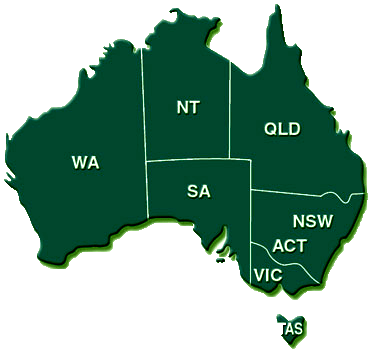
The Senate FADT Committee’s Inquiry
We had hoped for a Government response to the Senate FADT Committee’s report before
this Update, but to date there has been none.
The Effect of the DFRDB Commutation Campaign
Over the past two years, the DFRDB Commutation Campaign has focused on Commutation
and the Department of Defence’s misleading of members over its effect.
But that is not our main concern.
To recap:
In 1972, then Prime Minister Whitlam and Defence Minister Barnard overruled the objections of
Treasury and the Department of Defence and committed to implementing the Jess Committee
recommendations, which included the transfer of control and budget responsibility for Defence
Force Superannuation from Treasury to Defence. From that point on, Defence initiated an insidious
and sustained reduction of the defined benefits set down in the Jess Committee recommendations.
The wording of the Commutation provision in the DFRDB Act and the reference to outdated Life
Expectancy Factors, which transformed the Commutation recommendation from a proportionate
to a disproportionate exchange, was only the beginning.
In 1974 and 1976, two-sevenths (29%) of all DFRDB benefits was excluded from the interim cost-of-living adjustments.
In 1977, the automatic cost-of-living adjustments introduced were linked directly to the
unrepresentative Consumer Price Index (CPI), and between 10% and 32% of retirement pay,
Class C invalidity pay, and spouse’s and children’s pensions was excluded from those
adjustments.
Defence could have continued with the 1974/1976 partial indexation formula to reduce the
defined benefits. But, while it was not apparent to those serving at the time, it would soon
have become evident. So, the cost-of-living adjustments were related to the Commutation
entitlement, where the outdated Life Expectancy Factors determine the part excluded from
adjustment.
It didn’t matter if we commuted or not. The effect was the same.
In 1984, the part of the defined benefits excluded from the cost-of-living adjustments was
progressively increased to between 11% and 40%. That was done under the guise of
increasing the amount which could be commuted to compensate for the method of taxing
lump sum payments. That increase affects only those who commuted their maximum
entitlement from 1 July 1983 onwards.
Before the effect of Commutation is considered, the cumulative impact of CPI linked and
partial cost-of-living adjustments is a reduction of up to more than 40% of our benefits, over
our average lifespan, discriminating by age, gender, and date of separation from the
Defence Force.
In 1991, the amendment that closed the DFRDB scheme to new members also substantially
penalized members who re-enlisted after commuting and served at least one more year if
they did not transfer to the MSBS scheme. This amendment to the Act was not publicized,
so the members who re-enlisted and remained in the DFRDB scheme have suffered an
additional lifetime penalty.
While not solely responsible, the DFRDB Commutation Campaign, which seeks a
“reconsideration of the DFRDB Commutation issue”, has been the catalyst for the superficial
inquiries by the Commonwealth Ombudsman in 2019 and the recent Senate FADT
Committee, the findings of which are now cited by Defence in response to all DFRDB issues
raised.
Those inquiries established that we were misled over the effect of Commutation. However,
the focus in their Terms of Reference, on what we were told about Commutation, ensured
that the extent of the deception and the far more detrimental effect of CPI-linked and
partial cost-of-living adjustments would not see the light of day.
If all the expected outcomes of the DFRDB Commutation Campaign are met, the benefit to
members will vary. Older members of more senior rank, who served for more extended
periods and retired during the later years of the DFRDB scheme, will benefit to the greatest
extent. However, the many lower ranks who retired earlier, at a younger age and with
minimal qualifying service, and, who have suffered the most from the CPI-linked cost-ofliving adjustments, will benefit the least.
The DFRDB Commutation Campaign has succeeded in giving prominence to the
Commutation issue. But, given the outcome of the Ombudsman and Senate inquiries, it has
been counter-productive to reversing the insidious and ongoing reduction of our benefits.
ADFRA’s objectives have always included the outcomes sought by the DFRDB Commutation
Campaign, but ADFRA aims to restore all DFRDB benefits to the level members were told
they would be entitled to if they served for 20 or more years.
The Interpretation of the Commutation Provision
The interpretation of the Commutation provision in the DFRDB Act has long been a point of
contention and was tested in Reynolds and Defence Force Retirement and Death Benefits
Authority [2001] AATA 599 (28 June 2001).
The AAT found against Reynolds, but we believe that decision was flawed. Accordingly, we
have been working with one of our members, Clinton McKenzie, a retired lawyer, who has
taken the matter to the Federal Court. A summary of proceedings can be viewed in Federal
Court Application Progress.
The Approach to the Prime Minister
From his failure to reply to ADFRA’s correspondence, it is doubtful that the new Minister,
the Hon Andrew Gee MP, intends to address the DFRDB issues, which has prompted this
Email to the Prime Minister, copied to the Deputy Prime Minister, Defence Minister and
Minister for Defence Personnel.
The Need for more Pressure on Politicians
An Act of Parliament is required to stop the ongoing reduction of our DFRDB benefits.
Hence, we must keep up the pressure on our local Members of Parliament and State
Senators and impress on them that we will do our utmost to ensure there will not be a
majority Government after the next Federal Election.
Senators and Members of Parliament individually decide their preferred contact method.
To contact your local Member and State Senators, first find their home page in List of
Senators or List of Members, containing their contact details and best method of contacting
them.
Jim Hislop OAM
President



